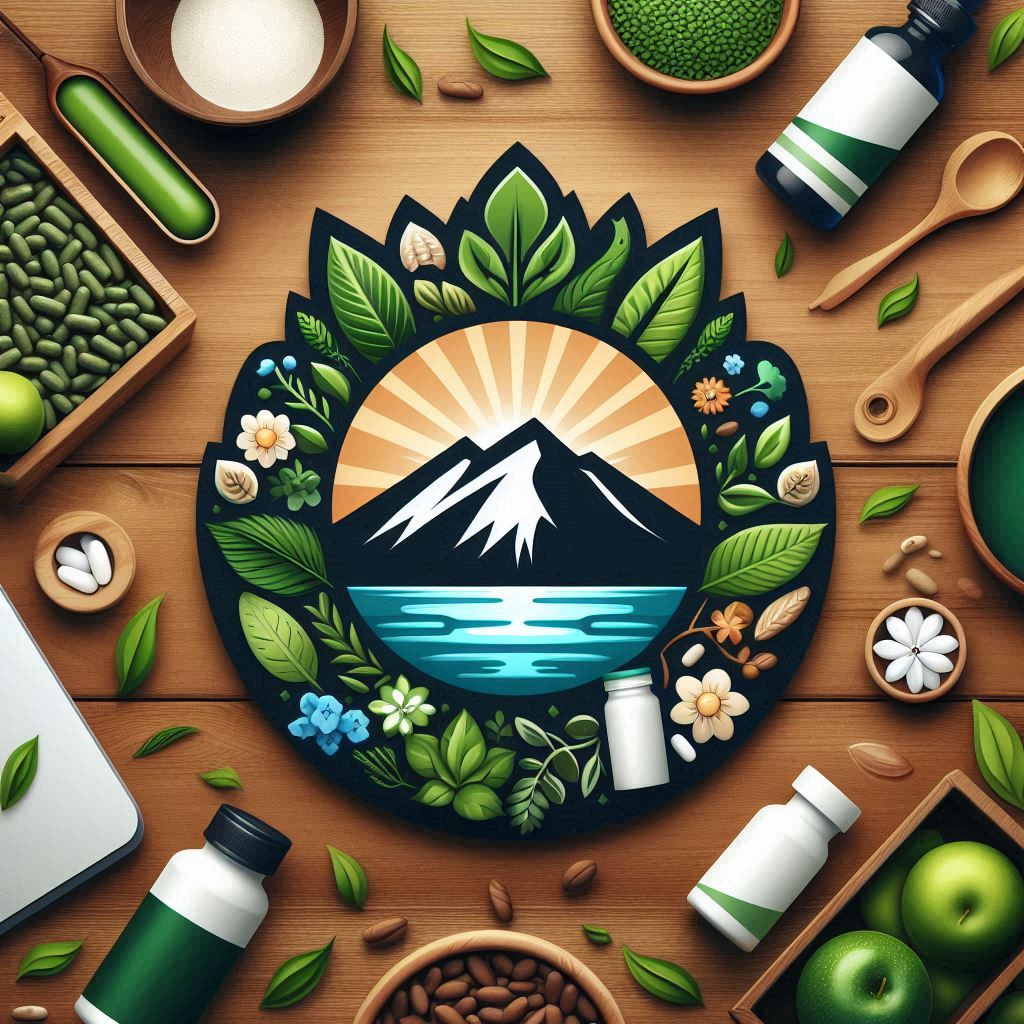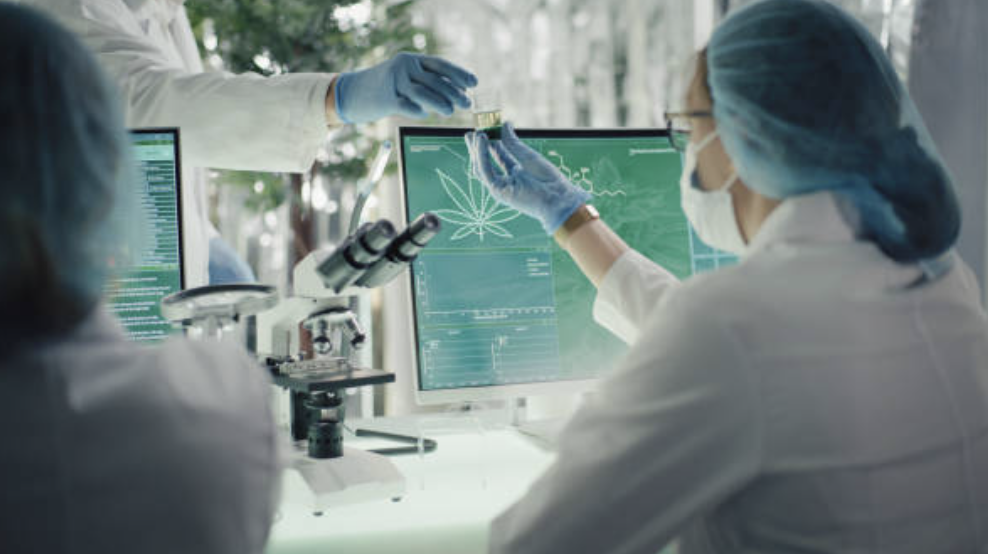Herbal supplements have evolved rapidly, mainly due to technology shaping how they’re made and offered. If you’ve been watching the wellness space, you’ll see herbal supplements cropping up in everything from daily vitamins to blends focused on sleep, digestion, mood, and more. These days, choices are endless, and the innovation happening behind the scenes is on another level.
Tech progress is transforming how supplements get produced, tested, and even tailored for you. The field is outgrowing old-school practices and guesswork. I’ve checked out the current tech-driven trends, and I’ll break down what’s happening from extraction to personalized blends—and even sustainability moves.
Industry Overview: The Fast-Growing Herbal Supplement Market
The market is huge and scaling up even faster. According to Grand View Research, the global herbal supplements market was valued at about $90.7 billion in 2023—and it’s forecast to reach $160 billion by 2030 if current patterns hold, with nearly 8.5% yearly growth.
Why the jump? Folks want natural over synthetic options, there’s more priority on preventive health, and people like brands that focus on transparency and customization. Plus, tech is letting us get more out of plants than ever.
Today’s market features supplements tailored for specific needs, cleaner ingredients, and much better quality control than even a few years back. There’s also pressure on producers to green up from the farm all the way to packaging and shipping.
Extraction Technology Takes Center Stage
Extraction—how the valuable bioactive compounds are pulled from plants and concentrated—might be the busiest area for new tech.
Supercritical CO2 Extraction: Clean, Green, and Effective
This method uses carbon dioxide held at high pressure in a supercritical state, acting as a very gentle yet effective solvent. What does that mean for you?
- No toxic chemicals: CO2 is just air. No risk of nasty leftovers.
- Low-temp process: Protects fragile plant compounds that heat might otherwise wreck.
- Purer, more potent extracts: Higher doses of the good stuff, less waste.
Brands often mention this in their marketing, and it makes sense. The supercritical CO2 extraction market itself reached $1.5 billion in 2023, and could double by 2031 as more supplement makers use this method (Reports & Insights).

Cold Extraction: Saving Heat-Sensitive Compounds
Heat wipes out some plant compounds—flavonoids, vitamins, terpenes—making cold extraction a smart choice for premium supplements. These methods (cold-pressing, cold-maceration) gently pull out all the actives without the risk of ruining them.
- Retains full-spectrum benefits
- Typically higher potency and better taste
- Perfect for small-batch, microbrand supplement runs
If you want a supplement with active compounds that aren’t destroyed by heat, look for “raw” or “live” extracts on the label.
Ultrasound and Microwave-Assisted Extraction
Modern supplement makers are using sound and microwave tech to :
- Break plant cells faster with ultrasound, letting actives escape with less effort.
- Release compounds quickly and gently with microwaves, reducing breakdown from too much heat.
These approaches can be great for stubborn herbs or where you want the gentlest process possible.
Nanotechnology in Herbal Supplement Innovation
This is the most eye-catching territory in herbal supplement science. Nanotech means working with particles and delivery systems at the nano-scale (really, really tiny). It’s not science fiction—these techniques are already boosting how well your body absorbs and uses herbal ingredients.
Nanoencapsulation: More from Every Dose
Lots of plant nutrients—like ginseng or turmeric—don’t absorb well. Nanotech steps in by:
- Boosting absorption by wrapping actives in nano-carriers, so your body takes up way more
- Preserving freshness since the carriers protect compounds from light, oxygen, and acid
- Control-releasing the actives over time, instead of dumping them all at once
This means your system gets more from a single dose and for a longer period.
Nanocrystals for Stubborn Compounds
Some actives—curcumin or resveratrol—are famously tough to absorb. Making them into nanocrystals with supercritical CO2 or similar means they dissolve better and get into your system faster.
- Nano-sized means way more surface area for uptake
- No more “expensive pee”—you actually keep the nutrients!
Look for words like “bioavailability optimized” or “nano-enhanced” on product packaging for these benefits.
Quality Control: Smart Manufacturing in Action
Great herbal supplements start with great plants, but tech is locking in top-notch results and consistency batch after batch.
AI and Automation for Consistency
Herbal ingredients are variable. Artificial intelligence and smart tech are used to:
- Analyze and sort the best plant materials
- Monitor and keep processes within a set range
- Check in real-time for impurities or substitutions
Some brands tout “blockchain tracking” or “machine learning quality controls,” and while that can be just buzz, real investments in automation create much more reliable supplements.

Lab Analysis: Setting the New Standard
Where it was once “trust us,” most reputable brands now use:
- High-Performance Liquid Chromatography (HPLC): Pinpoints exact chemicals in each batch
- Mass Spectrometry: Confirms which actives are present
- DNA Barcoding: Ensures the right plant, catching fraud or mislabeling
- Near-Infrared Spectroscopy: Fast, non-damaging testing for quality
Top brands regularly do third-party lab tests and even use QR codes so buyers can instantly see a batch’s test results. Total transparency is quickly becoming the baseline for shopper trust.
Sustainable Production: Greener Choices, Smarter Tech
Sustainability isn’t a niche demand anymore—it’s mainstream. That means every step, from farm to bottle, is getting extra scrutiny for its eco impact.
Regenerative and Organic Agriculture
Regenerative farming, focusing on soil health and biodiversity, is hot. Practices include:
- Avoiding chemical fertilizers and pesticides
- Rotating crops and boosting plant variety
- Growing “cover crops” that protect topsoil
- Using drip irrigation and moisture sensors for water savings
With some brands, every single step is blockchain-verified, letting buyers track the journey from seed to capsule. Occasionally, you’ll find farm origins listed right on the label.
Upcycled Ingredients and Closing the Loop
Upcycling is redefining what counts as an ingredient. Brands save stuff others would toss out—stems, peels, pulp—and turn them into fiber, antioxidants, or herbal actives. That means:
- Less landfill waste
- Lower ingredient costs
- All-new product niches
Examples include grape seed extract from winemaking leftovers or pomegranate peel in gut-health formulas. “Zero-waste” brands are worth a try if you’re seeking both value and sustainability.
Green Extraction and Packaging
- Renewable energy at factories: Solar and wind power are more common
- Water recycling systems: Purify and reuse water in extraction/service areas
- Compostable packaging: Think compost-ready bags and bottles from recycled plastic
- Bulk and refill options: Containers that customers exchange or refill, reducing single-use waste
Major brands like Garden of Life give customers visual proof of these steps and include sustainability as a main part of their plan.
Personalized Herbal Supplements Are Changing the Game
The future is personalized health. More companies now make supplements just for your unique biology and goals, not a generic blend.
Genetics and Biomarker-Driven Formulations
It starts with testing—think spit, cheek swab, or finger-prick at-home kits. These help brands:
- See how fast your body breaks down certain nutrients
- Measure vitamin, mineral, and even gut microbe balances
- Suggest precise herbal combinations and dosages
If you want to feel like your supplement is working for you, not the masses, this new personalized approach is appealing and fun to try.
High-Tech Delivery: Liposomal and More
Tech hasn’t just changed the recipe—it’s changed how you take your herbs. Here’s what’s big:
- Liposomal delivery: Encasing nutrients in tiny fat bubbles mimics your body’s cells and makes absorption easy—a huge win for stubborn nutrients like curcumin.
- Enteric coatings: Target active delivery to your intestines, where some herbs work best.
- Timed-release capsules: Slowly dose out actives all day, not just in one hit.
Look for these advanced features on ingredient lists when quality really matters to you.
Boutique Tech, Small Batches, and the Indie Brand Boom
Launching a new supplement label is more do-able than ever, thanks to smarter machines and lower minimum batches. This means more small-scale “indie” brands, farm-to-bottle options, and microproducers scaling up quickly using tech.
Compact Extraction for Small Producers
Small micro-extractors and tabletop units mean local herbalists and microbrands can make pro-grade extracts with lower energy use and costs, but with the high purity once only big brands could afford.
AI-Driven Formulation and Easy Manufacturing
Cloud-managed software now automates:
- Ingredient sourcing and regulatory checks
- Batch creation
- Order tracking and even packaging coordination
AI can suggest stable herbal blends based on research and past batch data, letting creative entrepreneurs experiment and tweak formulas easily.
Case Study: The Rise of Traceability and Transparency
The herbal supplement world has mixed things up—buyers demand to know exactly what’s in each product and where it comes from. The smartest brands make this their headline instead of burying it in the fine print.
How Blockchain and QR Codes Set a New Standard
Brands are using blockchain for public records of every step: seed, harvest, processing, extraction, and testing. Buyers scan QR codes to view all this info instantly, guaranteeing safe, authentic herbs.
- Makes swapping cheap herbs or fraud much harder
- Helps buyers trust both imported and specialty botanicals
I did this at my local store last month and felt a lot more confident when I could see the testing report and farm that produced the source herbs.
Third-Party Certifications: Credibility at a Glance
- Non-GMO Project Verified
- USDA Organic
- NSF GMP Certified
- USP Verified
These labels show thorough auditing, while top brands back up their claims with public batch test results and answer questions over phone or email.

Most Eye-Catching Tech Features in Modern Herbal Supplements
Shoppers often ask what tech features or buzzwords actually indicate value or effectiveness. Here are a few to keep an eye out for:
- “Supercritical CO2 Extracted”: Signals pure, potent extraction
- “Liposomal” or “Nanoencapsulated”: Way better absorption for key plant actives
- “Third-Party Lab Verified”: Independent confirmation your supplement has the right ingredients
- “Regeneratively Farmed” or “Sustainably Sourced”: Lower eco impact
- “Personalized Formula”: Compounded just for your needs or genetic test results
If a company spells these out clearly and offers the supporting data, I trust their products that much more.
Industry Challenges as Tech Gets Smarter
The tech boom isn’t all upside. Here’s what supplement makers are working around:
- Shifting regulations: New techniques like nano-carriers or AI-based quality checks need fresh oversight in some countries.
- Ingredient supply issues: Drought, climate events, or global conflict can limit key botanicals—making sustainable sourcing more necessary.
- Buyer skepticism: Not everyone is ready to trust high-tech claims—brands have to break things down (in simple terms) and share proof.
- Counterfeits and fraud: As demand grows, so does risk. DNA, real-time lab checks, and blockchain are helping to stop fake products.
The brands who level with shoppers, explain the real benefits and limits of their tech, and keep things transparent are sticking around the longest.
FAQs about Tech in Herbal Supplements
- Do these extraction techniques really make the supplement more potent? Yes, especially the newer CO2 and nano methods—they lock in more active compounds.
- Are nano-supplements safe? Usually, nano just means small enough to be absorbed well. Look for safety data, certifications, and independent lab results.
- How do I know if a brand’s “purity” claims are real? Reputable brands have third-party certified lab results and track ingredient sources, usually shared on their website.
- Why is everyone raving about personalized blends? Because you get a product made for your body, based on your genetics, diet, and goals, instead of a mass-market mix. It’s smart—and often effective.
What to Remember: Quick Tips for Buyers and Herbal Entrepreneurs
- Modern tech is raising standards for safety, potency, transparency, and eco-friendliness
- Check if the company can spell out how their innovations help you
- Eco and source transparency are expected now, not just nice extras
- Personalized, science-backed blends could soon be the new norm
Resources to Check Out
- Nanotechnology in Herbal Supplements Review (NCBI)
- FDA: Dietary Supplement Info
- American Botanical Council: HerbalGram
- NutraIngredients: Industry News
Comparison Table: New Herbal Supplement Tech at a Glance
| Innovation | Main Benefit | What to Look for |
|---|---|---|
| Supercritical CO2 Extraction | Purer, more concentrated plant extracts | Labeled “CO2 extracted” or “clean extraction” |
| Nanoparticle Delivery | Much higher absorption | “Nano-encapsulated” or “liposomal” label |
| Blockchain Sourcing | Total traceability | QR code for batch/farm details |
| AI Quality Controls | No batch-to-batch fluctuations | Third-party or AI-verified testing |
| Personalized Nutrition | Tailor-made for your body | DNA or biomarker test options |
Moving Forward: Next-Level Tech and You
Tech isn’t just a buzz in supplements—it’s making buying smarter, safer, and more effective. Whether you want to buy the best for yourself, or you’re planning to start your own label, keeping up with the latest tech gives you an edge. Look for brands that offer supercritical CO2 extraction, nano-delivery, blockchain sourcing, and custom blends—they’re usually ahead of the pack.
Do you have supplement questions or want to share a favorite discovery? I love hearing about experiences and answering questions about how this tech really makes a difference in your daily routine. Drop your stories, tips, or queries below—one reader’s take could help someone else find a supplement that’s just right!

